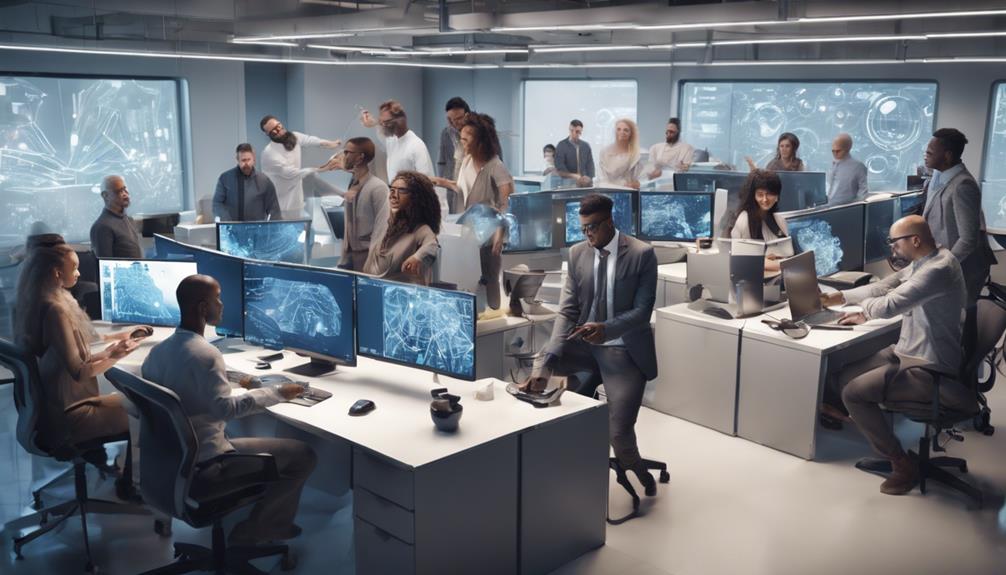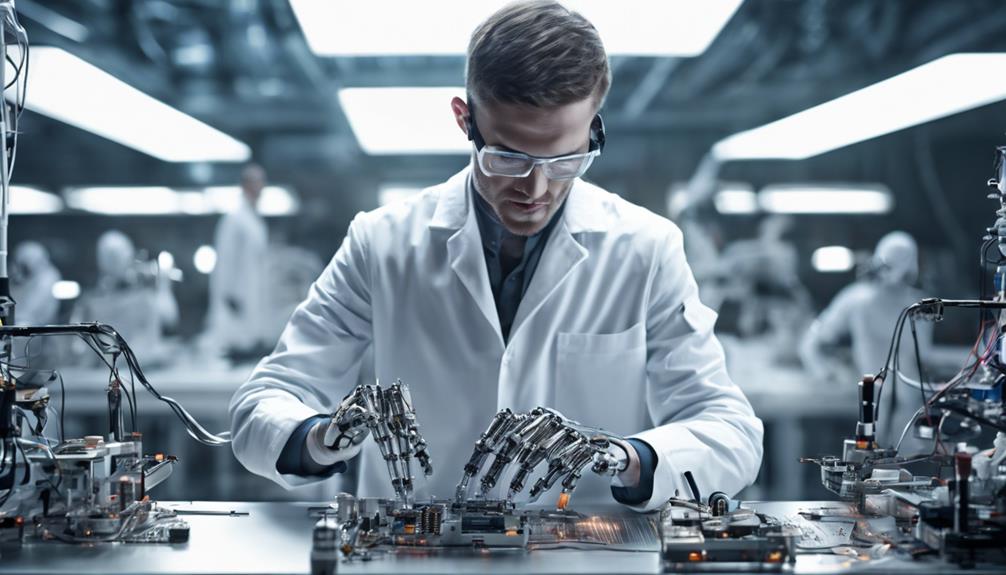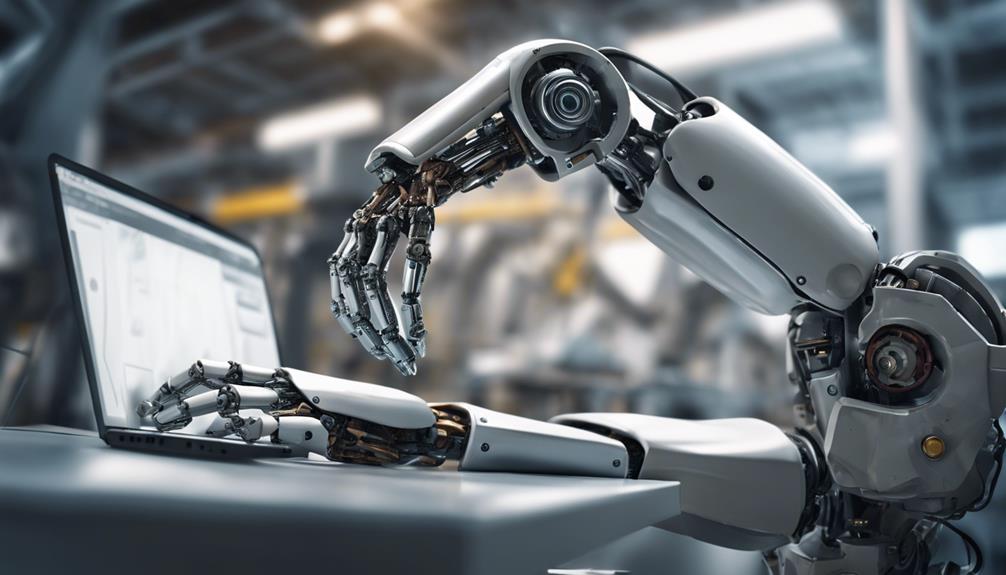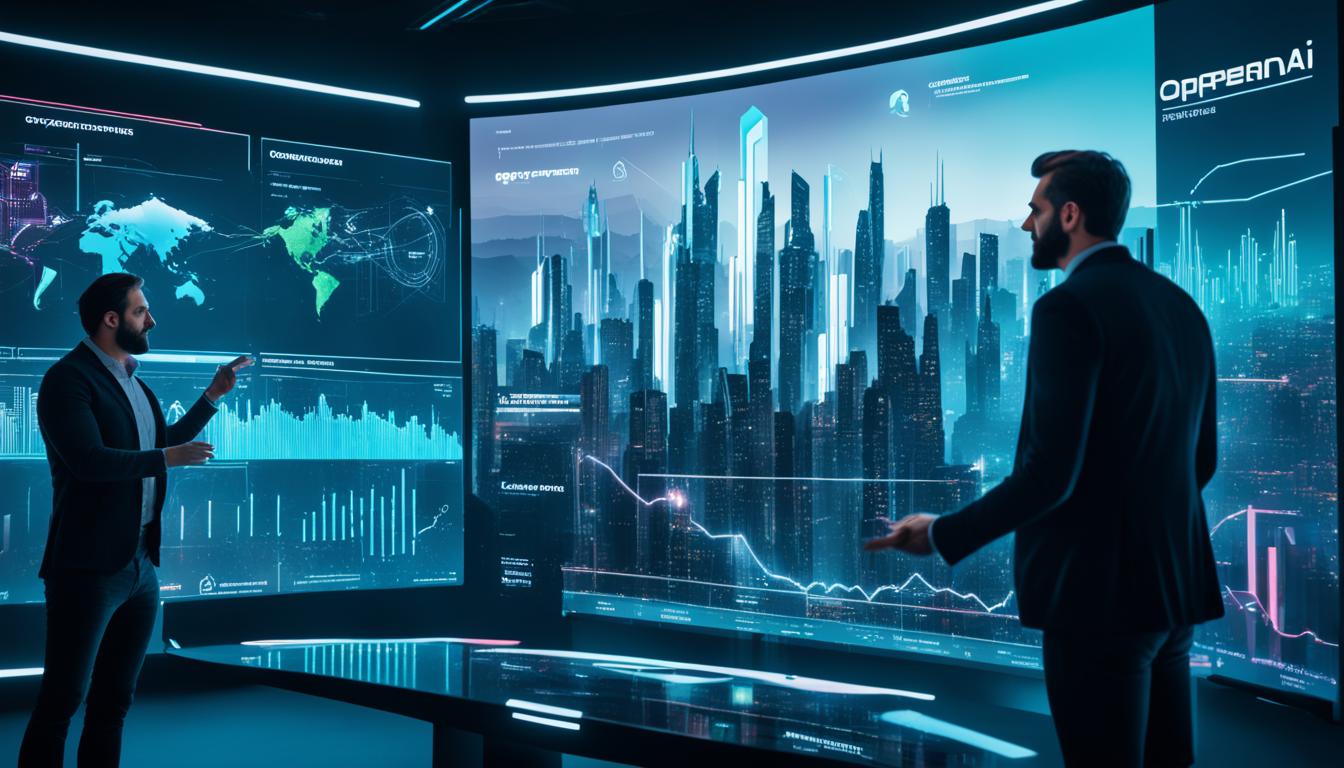In today’s rapidly evolving job market influenced by artificial intelligence, it is more important than ever to seek out stable employment that can withstand the disruptions caused by AI. As technology advances at an unprecedented rate, it is essential to have a well-thought-out plan in place to guarantee a long-lasting career.
By exploring the nuanced interplay between human-centric roles and technological innovation, individuals can carve out a path towards professional longevity and resilience in the face of automation. However, the key to securing these future-proof careers lies not only in identifying the right job categories but also in mastering essential skills and adapting to the ever-evolving demands of the digital age.
Key Takeaways
- Focus on jobs requiring personalized care, hands-on expertise, originality, and social skills.
- Cultivate emotional intelligence, critical thinking, and creativity for future job security.
- Stay updated on industry trends, acquire complementary skills, and embrace continuous learning.
- Invest in education, certifications, and upskilling to ensure long-term career success amidst AI advancements.
AI-Resilient Job Categories
Amid the rapid advancements in artificial intelligence (AI), identifying job categories that demonstrate resilience to automation is crucial for individuals seeking long-term career stability and growth. Healthcare professionals, such as physical therapists and nurses, offer personalized care and human interaction that AI cannot replicate, ensuring their continued relevance in the face of technological advancements.
Skilled trades, including masonry and plumbing, require hands-on expertise and technical knowledge, making them less susceptible to automation and providing a secure career path. Creative professions, like artists and designers, rely on originality and innovation, traits that are challenging for AI to emulate, thus offering job security in an automated world.
Sales and customer service roles, which heavily rely on social skills and human interaction, are essential for building lasting relationships in the AI era, making them resilient to automation. Investing in education and development opportunities, such as pursuing higher degrees from institutions like WGU, can further future-proof careers against AI disruptions, ensuring long-term job security in a rapidly evolving job market.
Strategies for Job Security

In navigating the landscape of job security amidst AI advancements, strategic measures must be employed to fortify one's career resilience. To ensure a secure job future, consider the following strategies:
- Focus on Emotional Intelligence: Acquire skills that involve human interaction and emotional intelligence, such as teaching, nursing, and social work. These roles require a level of empathy and understanding that are difficult for AI to replicate.
- Opt for Creative Professions: Pursue careers in creative fields like artists, writers, and designers that demand originality and innovation. These roles rely on human creativity, which remains a unique strength compared to AI capabilities.
- Explore Skilled Trades and Technical Professions: Consider roles in skilled trades and technical professions that require physical dexterity and specialized knowledge. Jobs like electricians, plumbers, and technicians are less susceptible to automation.
- Enhance Sales and Customer Service Skills: Explore opportunities in sales and customer service, emphasizing social skills and relationship building. These roles often involve complex human interactions that AI struggles to replicate effectively.
Essential Skills for Future Employment
Future employability hinges on mastering essential skills that are resilient to AI disruptions in the job market. Emotional intelligence, critical thinking, and creativity are paramount in navigating the evolving employment landscape.
Individuals must cultivate problem-solving abilities, adaptability, and empathy to thrive amidst technological advancements. Continuous learning and upskilling are vital to stay ahead in areas where AI struggles to replicate human capabilities.
Specialized fields offer a buffer against automation, emphasizing the importance of staying updated on industry trends to anticipate shifts in demand. Professions emphasizing complex human interactions, such as healthcare and education, demonstrate lower susceptibility to AI replacement.
To secure long-term employment, individuals need to develop a blend of technical expertise and interpersonal skills that align with the ever-changing job market. By honing these essential skills and staying attuned to industry demands, individuals can position themselves to withstand the disruptions brought about by AI technologies.
Adapting to Technological Changes

Navigating the dynamic landscape of the modern workforce necessitates a proactive approach to adapting to rapid technological changes. To stay relevant and enhance career prospects in the age of AI, individuals must embrace continuous learning and adapt to new technological advancements.
Here are four key strategies to effectively adapt to technological changes:
- Stay Informed: Keep abreast of advancements in AI and emerging technologies within your industry to anticipate changes and proactively respond.
- Acquire Complementary Skills: Invest in acquiring skills that complement AI technologies, such as data analysis or programming, to remain competitive in the job market.
- Network and Stay Updated: Build a strong professional network to stay informed about industry trends and technological shifts, enabling you to adapt quickly and effectively.
- Invest in Training Programs: Pursue certifications or participate in training programs to strengthen your expertise in areas impacted by AI, ensuring you are well-equipped for the future of work.
Long-Term Career Success
To ensure sustained professional relevance amidst the advancements of AI and emerging technologies, long-term career success hinges on a strategic commitment to continuous learning and upskilling.
In the era of AI automation, individuals must proactively adapt by pursuing advanced degrees and certifications to enhance job security and future prospects. Building a robust professional network plays a pivotal role in opening doors to new opportunities and career growth, especially in evolving industries.
Adapting to technological advancements is not just a choice but a necessity for staying relevant in today's dynamic job market. Investing in acquiring skills that are in high demand can significantly contribute to securing a stable and thriving career despite potential disruptions caused by AI.
Frequently Asked Questions
What Job Is Most Safe From Ai?
Roles requiring high levels of creativity, emotional intelligence, and strategic thinking like Human Resource Managers, Sales Managers, Writers, and Software Developers are at low risk of AI replacement. The intricate human touch and nuanced decision-making involved reinforce their resilience against AI disruption.
Which Jobs Will Not Be Affected by Ai?
Jobs that require high levels of human interaction, creativity, strategic thinking, and leadership skills, such as Human Resource Managers, Sales Managers, Event Planners, Writers, and Graphic Designers, are less likely to be affected by AI due to AI's limitations in replicating human touch and nuanced decision-making abilities.
What Jobs Are Future Proof From Ai?
Professions emphasizing complex problem-solving, critical thinking, and creativity, such as software development, data analysis, and strategic management, are future-proof from AI disruption. Roles requiring high levels of emotional intelligence, originality, and technical expertise also offer resilience to automation.
What Job Is Most Likely to Be Replaced by Ai?
Telemarketing, bookkeeping clerks, compensation managers, receptionists, and couriers are at high risk of AI replacement due to automation advancements. Tasks such as data handling, customer service, and delivery services are susceptible to AI efficiencies.
Conclusion
In conclusion, as the landscape of work continues to be reshaped by AI, individuals must strategically position themselves in resilient job categories such as healthcare, education, skilled trades, and leadership roles.
By honing essential skills, adapting to technological advancements, and committing to continuous learning, one can navigate the evolving job market and secure long-term career success.
Embracing the intersection of human-centric professions and technological innovation is crucial in building a future-proof career in the age of AI.









